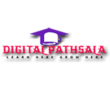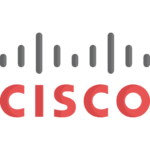
computer network
(Foundation)
Status : Closed

html 4.X
(Foundation)
Status : Closed

html 5
(Foundation)
Status : Closed

linux
(Foundation)
Status : Closed

windows 10
(Foundation)
Status : Closed

android
(Foundation)
Status : Closed

Entrepreneurship
(Foundation)
Status : Closed

leadership
(Foundation)
Status : Closed

CRM
(Foundation)
Status : Closed
In the digital era, the realm of education has witnessed a transformative shift with the emergence of online certification exams. These assessments have become pivotal in validating skills, enhancing career prospects, and revolutionizing the learning experience. This article explores the significance, benefits, challenges, and future trends surrounding online certification exams.
The Rise of Online Certification Exams
Shifting Educational Paradigm
The traditional exam-taking process has evolved significantly, transitioning from pen-and-paper to online platforms. This shift has been prompted by technological advancements and the need for accessible, efficient, and convenient assessment methods.
Global Accessibility and Reach Online
certification exams have broken geographical barriers, enabling individuals from diverse backgrounds and locations to participate without the constraints of physical proximity. This accessibility fosters inclusivity and expands educational opportunities worldwide.
Advantages of Online Certification Exams
Flexibility and Convenience
One of the primary benefits is the flexibility offered to candidates. They can schedule exams at their convenience, eliminating the limitations of fixed testing schedules. This flexibility accommodates diverse learner needs and work commitments.
Cost-effectiveness and Sustainability
Online exams often reduce costs associated with physical infrastructure, paper, and personnel required for traditional exams. Additionally, the digital format aligns with sustainability efforts, minimizing paper wastage and carbon footprint.
Challenges and Considerations
Security and Integrity
Maintaining exam integrity and preventing cheating in online settings pose significant challenges. Ensuring secure platforms and employing advanced proctoring technologies are crucial to uphold the credibility of online certifications.
Technological Infrastructure and Access
Unequal access to technology and internet connectivity can impede the participation of certain demographics. Bridging the digital divide is essential to ensure equitable opportunities for all candidates.
The Impact on Learning and Career Advancement
Skill Validation and Employability
Online certifications serve as tangible proof of an individual’s skills and knowledge. They enhance employability by providing credentials recognized by industries, validating expertise, and boosting confidence.
Continuous Learning and Professional Development
The dynamic nature of online certification exams encourages continuous learning and upskilling. Professionals can stay updated with industry standards and trends, fostering their career growth and adaptability.
Future Trends and Innovations
Adaptive Testing and Personalization
Advancements in technology pave the way for adaptive testing models, tailoring exams to individual competencies. Personalized assessments optimize the learning experience, focusing on specific strengths and areas requiring improvement.
Blockchain and Credential Transparency
The integration of blockchain technology ensures the transparency and authenticity of certifications. Immutable records enable easy verification, reducing fraudulent credentials and enhancing trust in online certifications.



























